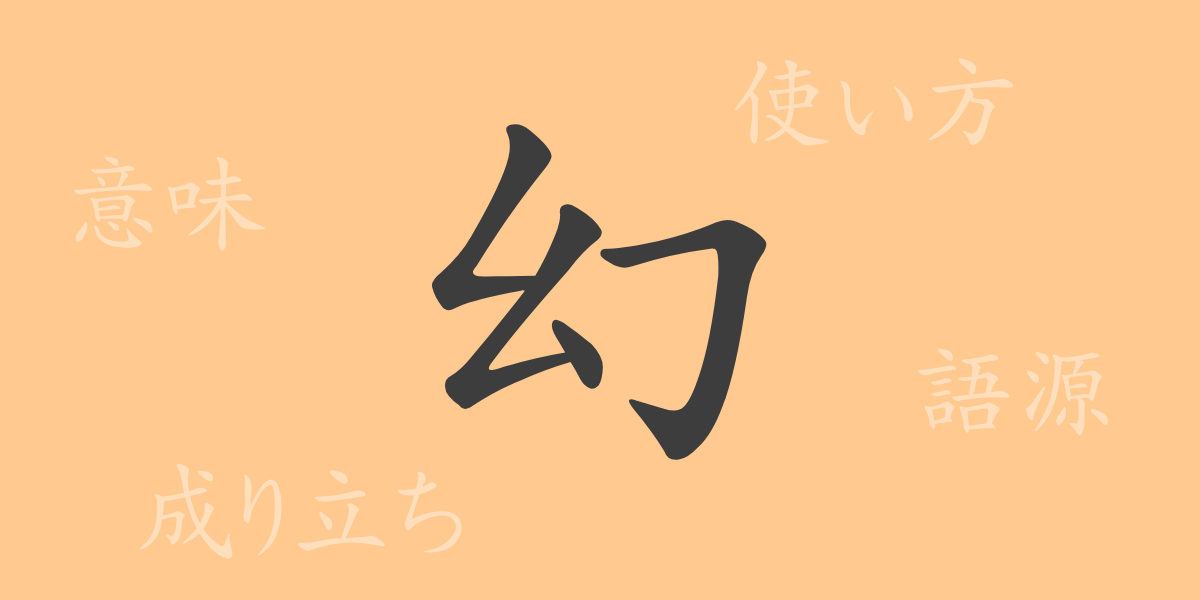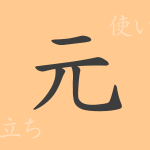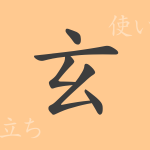The kanji “幻(げん, gen)” captures the imagination with its fantastical imagery. Our world is filled with unseen, intangible things that often leave a deep impression on us, reflecting vividly in our culture and language. This article delves into the world of the common kanji “幻(げん, gen),” exploring its origins, meanings, usage, and the idioms and phrases it appears in. Join us on a journey to uncover the charm and background of this intriguing character.
Origins of 幻(げん, gen)
The kanji “幻(げん, gen)” is derived from ancient Chinese pictographs. Originally, it depicted an imprisoned spirit and later came to signify mysterious phenomena, dreams, and illusions that are not visible but felt in the heart. This character was introduced to Japan along with Buddhism, during which time it acquired richer meanings unique to Japanese interpretation.
Meanings and Usage of 幻(げん, gen)
The kanji “幻(げん, gen)” represents images that are not visible but appear in the mind or illusions that seem real despite their nonexistence. For instance, “幻想(げんそう, gensou)” refers to ideal images created in the mind that do not exist in reality, while “幻覚(げんかく, genkaku)” denotes psychological phenomena where one sees or hears things that are not actually there. Thus, “幻(げん, gen)” is used to express concepts that lie at the boundary between reality and non-reality.
Readings, Stroke Count, and Radical of 幻(げん, gen)
The kanji “幻(げん, gen)” has several features related to its form and meaning.
- Readings: The On’yomi (音読み) is “ゲン(げん, gen),” and the Kun’yomi (訓読み) is “まぼろし(maboroshi).”
- Stroke count: “幻(げん, gen)” consists of 4 strokes.
- Radical: The radical is “幺(いとがしら, itogashira),” indicating threads or fibers.
Idioms, Proverbs, and Phrases Using 幻(げん, gen)
There are numerous idioms, proverbs, and phrases that include the kanji “幻(げん, gen),” each adding to the richness of the language.
- 幻想(げんそう, gensou): An ideal image created in the mind that does not exist in reality.
- 幻覚(げんかく, genkaku): A psychological phenomenon where one sees or hears things that are not actually there.
- 幻滅(げんめつ, genmetsu): Disillusionment caused by the gap between ideal and reality.
- 幻影(げんえい, genei): An insubstantial shadow or phantom-like existence.
- 幻灯(げんとう, gentou): Light images projected onto a wall by a projector.
These idioms and phrases are frequently used in everyday conversation and literary works, showcasing the richness of Japanese expressions.
Conclusion About 幻(げん, gen)
The kanji “幻(げん, gen)” symbolizes things that are unseen yet deeply affect our hearts. Its unique meanings and uses have created diverse expressions in the Japanese language. Through this article, we hope you have appreciated the charm of “幻(げん, gen)” and its historical and cultural background. Understanding the depth of language helps us recognize the profound impact of words. Continue to explore the world of “幻(げん, gen)” and discover the richness it adds to the Japanese language.

























